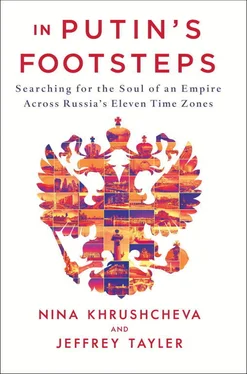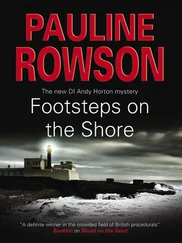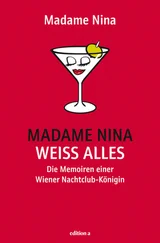Russia’s other enduring myth is that of a caring and benevolent czar—be it Ivan the Terrible; Peter the Great; or Nicholas I, who announced that the three pillars of Russia’s empire were pravoslavie, samoderzhavie, narodnost (the Russian Orthodox faith, absolute state power, and the people). After the March 2018 presidential elections, with Putin winning an impressive 77 percent of the votes, [8] Andrew Roth, “Vladimir Putin Secures Landslide Victory in Russian Election,” Guardian , March 18, 2018.
and a subsequent inauguration fit for a czar, many Russians have begun to see Putin as Putin the First.
Do the three imperial pillars of Russia’s past still uphold an empire of Putin’s present? We were determined to find out.
1
KALININGRAD
THE AMBER-TINTED GAZE OF AN EMPIRE
TIME ZONE: MSK-1; UTC+2
When Kant assumes that something outside of us, a thing-in-itself, corresponds to our ideas, he is a materialist. When he declares this thing-in-itself to be unknowable, transcendental, other-sided, he is an idealist.
—Vladimir Lenin,
Materialism and Empirio-Criticism
Kaliningrad, formerly the German city of Königsberg, has often been called Russia’s western door, yet this door is not always a welcoming one. From here, the country’s exclave (officially, the Kaliningrad Oblast, or region) that borders Poland, Lithuania, and the Baltic Sea, the empire gazes with suspicion at anyone who may doubt its superiority and strength.
We arrived late one cool, clear-skied April afternoon at Kaliningrad’s shambolic, undersized airport—an architectural remnant from Soviet times when it was a “closed” city (off-limits, that is, to nonresidents, owing to its strategic significance as the Soviet’s westernmost military outpost) and had just a handful of visitors. We found ourselves greeted with distrust. As we walked off the runway and entered the terminal building, stern blue-uniformed border guards brusquely took all the passengers’ passports. The guards divided us into two lines, one for foreigners, the other for Russians. One guard detained Jeff, an American citizen, and led him up to a “detention” office—a room on the second floor that was empty, save for a fluorescent light and a desk. The guard handed his detainee over to his two colleagues, who questioned him about why he had come to Kaliningrad and the people on his contact list for the city.
“What do you think of Putin?” one of the officers demanded, his doughy face, slack paunch, and diminutive stature belying the seriousness of his expression. His comrade noted down Jeff’s answers. The short man’s questions were coming at a rapid pace.
“What are you doing here?”
“How is it that you speak Russian?”
“You say you’re writing a book about Russia. About what , exactly?”
“Where are you staying in Kaliningrad?”
“Who’s accompanying you?”
“What flight are you taking out of here, and on what date?”
The Western press was reporting that Russia, in apparent violation of a decades-old arms control treaty signed with the United States, had been busy stationing nuclear-capable intermediate-range Iskander missiles in the oblast, so such scrutiny was to be expected. Yet the guards relented when they learned that Jeff was a frequent foreign-policy commentator on the Russian airwaves and was married to a Russian.
Then the officers asked him to call Nina, a Russian citizen, and have her come up for her own cross-examination.
Easier said than done. The airport officials, when she had asked for directions, did not know where the apparently “secret” facility was located. Impatient, the border guards finally sent the American subject of their interrogation down to find her himself.
Nina found it hard to take her interrogator seriously, given his resemblance to the Pillsbury Doughboy. But then it dawned on her—this clever, persistent young man had overcome his looks to turn himself into a duty-bound Guardian of the Motherland, though, as it turned out, a polite and apologetic one. Nonetheless, his questions were still intrusive, a point-by-point verification of all the answers Jeff had given; the guard treated Nina as if she were Jeff’s minder, as they would have done to most women seen with foreign men during the Cold War. They paid particular attention to his feelings about Putin.
“Does he approve of him? Do you?”
“Sometimes,” she answered.
The point came, though, when she had had enough.
“Why all these questions?” she asked. “Kaliningrad isn’t a closed city anymore, right?”
“Of course not,” he replied. “We’re very sorry. You see, this American is a foreigner . You do understand, don’t you?”
Nina nodded, recalling similar interviews by American border officials when she first arrived in New York almost three decades earlier. And now, with relations between the two countries worsening by the day, a guarded approach to Western visitors was back in vogue again.
Jeff, for all intents and purposes a Muscovite now, didn’t bat an eye at such a suspicious reception. Nina, living in New York, was choking with disgust.
“I feel violated,” she said, shaking her head.
Finally we made our way out of the terminal. From the various souvenir stalls and a medley of amber amulets and portraits of varying dimensions made in his image, Vladimir Putin’s stern gaze was fixed upon us with icy distrust. In addition to the amulets, the stalls held an array of amber bracelets, statuettes, and portraits of the double-headed eagle—Russia’s coat of arms.
Amber, colloquially known as Baltiyskoye zoloto (“Baltic gold,” except that it is fossilized tree resin), was everywhere on display, crowding shelves in the terminal’s cluttered arrival hall. Artisans had turned the oblast’s signature treasure into a local strategic resource on a par with oil and gas but utilized it to glorify the nation’s president and insignia of state. It is, of course, a valuable resource. Nine-tenths of the world’s supply of this unique substance originates in the oblast; Kremlin insiders hold a monopoly on its trade, worth more than a billion dollars a year.
Annexed by the Soviets after World War II—in Russia most commonly known as the Great Patriotic War—the Kaliningrad Oblast had previously belonged to the seven-hundred-year-old East Prussian region of Germany. Königsberg was the region’s serene redbrick capital. Renamed Kaliningrad in 1946 to honor the just-deceased Soviet prime minister Mikhail Kalinin, the ceremonial head of state under Lenin and Stalin, the city became the capital of the Soviet Union’s westernmost territory. Yet, apparently, some young people nowadays do not even know the origins of its name. We asked a twenty-five-year-old resident if he knew who Kalinin was, but, flustered, he admitted he did not. In any case, Kaliningrad’s history is fraught with contradictions: the city has retained a Soviet functionary’s name but has removed its hulking Lenin statue from its main square. In its place, municipal authorities have erected an obelisk to the Great Patriotic War. Nobody here would argue with that.
We took a taxi into town, approaching its skyline of mostly ten-story concrete apartment blocks and then trundling down often mud-splattered, potholed, and at times unmarked roads busy with slick, foreign-made cars. Some cars—especially BMWs, Audis, or Volkswagens, bore bumper stickers that read as an exhortation to attack: ON TO BERLIN, AGAIN! That militancy—Russians had defeated Nazi Germany and now use their automobiles to relive the victory—also displayed deep insecurity and evoked a sad, telling irony: they prize German automobiles above their own. The war had dealt cruelly with the city: the old cobbled German streets and quaint, gingerbread German houses remain intact almost exclusively in the Amalienau and Maraunenhof districts. Elsewhere, Kaliningrad, two and a half decades after the demise of the communist state, is Soviet and gray.
Читать дальше












